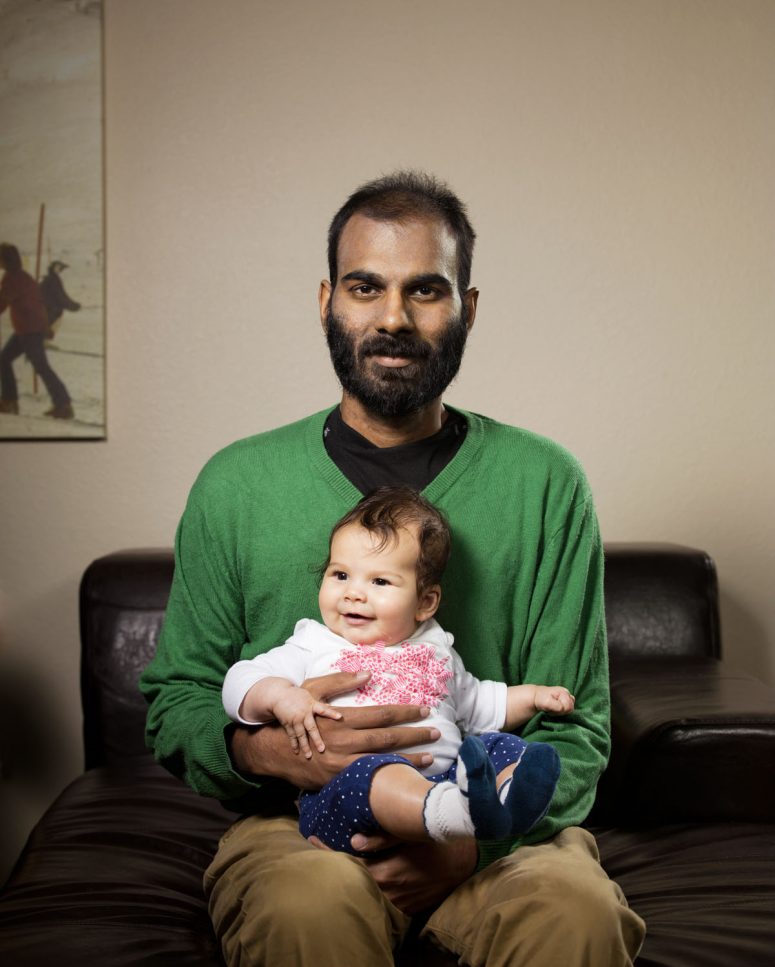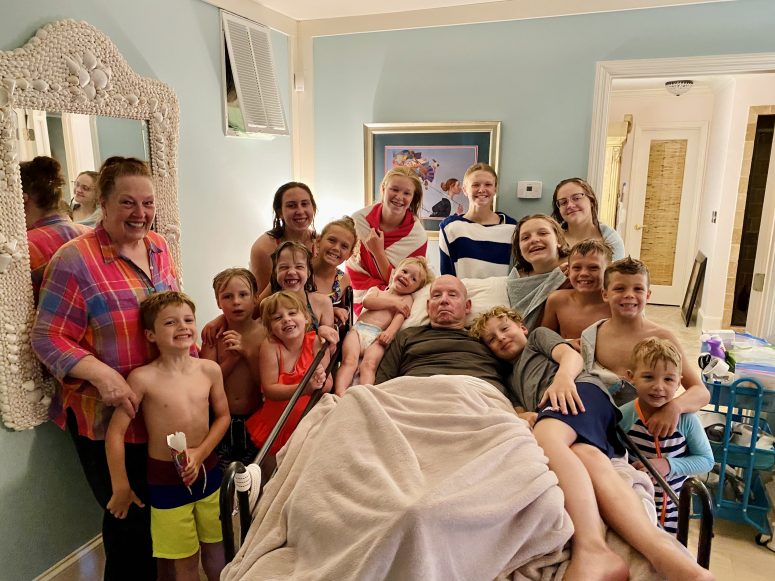
I recently finished When Breath Becomes Air by Paul Kalanithi. I was utterly moved by this powerful account of Kalanithi’s own life as a neurosurgeon, the most demanding physician in the world, and his own premature death in his mid thirties after contracting terminal cancer.
Not only was Kalanithi a paragon brain surgeon, though, he is an absolute poet on the meaning of life, the humanity of doctors, and making the most out of a terrible situation.
Rating: ★★★★★. These were my favorite passages: Continue reading…

Brent Snow surrounded by his wife and grandkids
My dad is dying.
Two years after a disabling stroke that compounded his dementia, he is largely brain dead now and rapidly deteriorating. I haven’t spoken to him since Christmas. Even then it was like speaking to a toddler.
Bedridden for most of the year, he mumbles gibberish on occasion. But he mostly sleeps while confined to his bed on heavy medication. It’s deeply saddening.
Earlier this summer, my uncle said it best: “Your father was the smartest, most intelligent, and funniest of the three of us,” he said, speaking of the three brothers. “It’s heartbreaking to see him lose that gift before the rest of us.”
As terrible as it sounds, I’ve actively hoped for my father’s death all year. This is no way to live. I don’t fault any of my family members, however, for wanting to keep his warm, breathing body around. I fully trust my mother’s and nearby sibling’s selfless care of him.
We tried hard as a family to help him rally, but it wasn’t meant to be. On top of that, I take great comfort in my conviction that I will see him again, in all his glory, in the afterlife.
Some people think that’s fake news. But there’s no proof either way—which makes this beautiful, mysterious life on Earth all the more magical. Whatever happens, I hope you tell your dad you love him after reading this.
I’ll go first: Dad, I love you. I never got to say it with the knowledge that it would be my last time doing so, but I love you. Thank you for being an extraordinary and devoted father. I miss you.
Read also: 10 reasons my dad is awesome
I often read the following: “the tragic death of so-and-so.” I don’t mean to be insensitive, but when is death not tragic? Loss of life is always tragic, right, so why dilute the adjective? Agree, disagree? Should writers call death “tragic” or just call it “death”?


